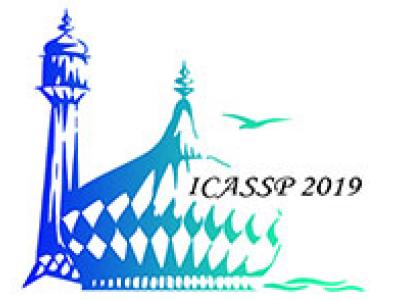Documents
Poster
SPACE ALTERNATING VARIATIONAL ESTIMATION AND KRONECKER STRUCTURED DICTIONARY LEARNING

- Citation Author(s):
- Submitted by:
- CHRISTO KURISUM...
- Last updated:
- 7 May 2019 - 12:58pm
- Document Type:
- Poster
- Document Year:
- 2019
- Event:
- Presenters:
- Christo Kurisummoottil Thomas
- Paper Code:
- 3555
- Categories:
- Keywords:
- Log in to post comments
In this paper, we address the fundamental problem of Sparse
Bayesian Learning (SBL), where the received signal is a high-order
tensor. We furthermore consider the problem of dictionary learning
(DL), where the tensor observations are assumed to be generated
from a Kronecker structured (KS) dictionary matrix multiplied by
the sparse coefficients. Exploiting the tensorial structure results in
a reduction in the number of degrees of freedom in the learning
problem, since the dimensions of each of the factor matrices are significantly
smaller than the matricized dictionary if we vectorize the
observations. We propose a novel fast algorithm called space alternating
variational estimation with dictionary learning (SAVED-KS),
which is a version of variational Bayes (VB)-SBL pushed to the
scalar level. Similarly, as for SAGE (space-alternating generalized
expectation maximization) compared to EM, the component-wise
approach of SAVED-KS compared to SBL renders it less likely
to get stuck in bad local optima and its inherent damping (more
cautious progression) also leads to typically faster convergence of
the non-convex optimization process. Simulation results show that
the proposed algorithm has a faster convergence rate and lower
mean squared error (MSE) compared to the alternating least squares
(ALS) based method for tensor decomposition.

